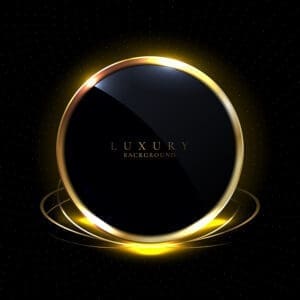Housekeeping has always been a cornerstone of a guest’s experience, but now it appears that hotels rendering opt-out exchanges may change the paradigm behind this integral service. Encompassed as a part of the buzz term ‘decontenting’, this particular entity is when guests are prompted at check-in to opt-out of daily housekeeping services with primary compensations including additional loyalty points, room discounts or F&B vouchers. Many independents and a few major brands, notably select Westin hotels, are already employing this alternative tactic.
Decontenting can pertain to much more than just housekeeping – bathroom amenities as another obvious occurrence, but also think basic cable, breakfasts, newspapers and even the comfort of meeting a person at check-in instead of completing this process via a mobile device. Ask yourself: at what point does a hotel stop being a hotel and become an a la carte service?
The biggest fear is that decontenting will act as a preceding action towards drip pricing accounting models; gradually removing all the content from the product then adding surcharges for their reintegration into the hotel experience. Drip pricing has been widely shown to frustrate travelers and ultimately discourage brand loyalty. You need only look to the airlines as a cross-example of this effect. But decontenting does not directly lead towards chagrin-inducing, opt-in drip pricing. It’s a precursor built around the choice to opt-out.
This leaves plenty of wiggle room to argue the merits of decontenting on a case-by-case basis, especially given the spectrum of hotel brands across different price points. Housekeeping is one of the most sensitive cases given the potential for massive labor cost reductions. To help settle this debate, it’s handy to know a shrewd marketing and branding researcher already tackling the matter, and that’s precisely where I stand with Laurence Bernstein, a managing partner at Protean Strategies (www.proteanstrategies.com).
From a study conducted earlier this year amongst a representative sample of 320 US business and leisure travelers covering the gamut of budget, five-star, boutique and lifestyle hotels, there were many definitive conclusions. First of note is that 24% of business travelers and 13% of leisure travelers have been offered this alternative at some point in the past. This tells us that this topic isn’t anything revolutionary, for both hoteliers and for the consumer at large.
Significantly, almost 80% of respondents were willing to barter for the daily cleaning, although sensitivities varied tremendously across all key variables such as hotel type (no frills, luxury etc.), travel purpose (solo business, couples leisure etc), type of compensation offered (ADR reductions, F&B coupons or loyalty points) and given amount of that compensation.
Nearly one in three said they definitely would forfeit having their room cleaned everyday in exchange for $10 off the ADR. This number jumps to 45% when the reimbursement is swapped to 1,000 loyalty extra points. When you add together the ‘probably would’ responses, the affirmative percentages for both of these incentives roughly doubled (71% and 79% respectively). However, when the reward was listed at 250 points, only about one in ten said they’d definitely bite.
The least motivating reimbursement concerned F&B discounts, attributed to the fact that many participants likely don’t use a hotel’s restaurants or bars when traveling. Outside of extra loyalty points, there also appears to be some stark elasticity in ADR and F&B incentives. A $5 room rate markdown only prompted 42% of both the ‘definitely would’ and ‘probably would’ categories. Applied to F&B, that $5 only elicited a combined 38% affirmation from those surveyed. Thinking in general terms, roughly 50% of guests are highly inclined towards this tidiness tradeoff, with loyalty points valued most followed by room discounts, and then lastly by F&B vouchers.
Supplementary questions gave further insights about the declining respondents. Two popular answers were that they weren’t involved in the points program, rendering loyalty rewards worthless, and that they were on an expense account, bestowing no personally actualized benefits to monetary discounts. In addition, of those unwilling to consider the housekeeping opt-out, 54% of those surveyed believed that the rooms required daily cleaning and most of the remainder believed that the counteroffers simply weren’t high enough.
Of particular importance was the phrasing of the offer, although this didn’t necessarily parallel the underlying reasons for accepting the exchange. It’s currently de rigueur to wrap daily cleaning substitutions in a pro-environmental envelope, but only 20% of those surveyed accepted on these grounds, the rest came from those seeing the inherent value in the reward.
Regardless of whether they took the offer, the delivery affected how travelers perceived the hotel. One in two of those surveyed felt better about the property because they believed that the hotel was more environmentally conscious; that the rooms pragmatically didn’t need daily cleaning; that the cost savings were being passed onto the consumer; that merely having the option was a plus; or that it was just nice of them to ask.
Contrarily, describing the offer in the wrong way can alienate guests. Around 11% of respondents cited this form of decontenting was a vessel to improperly cut corners or a blatant suspect of greenwashing, while 39% were unaffected either way.
Taken purely by the numbers, the overall percentages speak in favor of making this alternative available to guests. Contextually, opt-out services are far more lucrative to those staying at budget properties versus luxury hotels. Business travelers were less likely to eschew the daily maid over their leisure counterparts with double digit spikes in disapproval ratings for both of these broad groupings as the jump was made from economy and three-star to luxury and boutique classifications.
After all, if you’re paying upwards of $500 a night, striking $10 off is hardly worth the trouble. However, that same deduction from a $75 ADR is a dramatically greater consideration. This excludes the potential amongst luxury travelers for a hotel to appear as ‘cheap’ by proffering this exchange. Clearly, decontenting isn’t for the affluent.
It comes down to housekeeping and cleanliness as a part of the overall experience and interaction with the brand. By removing amenities, you are removing physical points of interaction and thus, dehumanizing the hotel. Treating services with an a la carte approach means that guests are less prone to discover the fascinating nuances of your full experience – for instance, a special note and chocolate left on the bed with turndown service. You’ll never have the chance to sweep your guests away and give them the fulfilling stay they truly desire.
As a more transparent comparison, think of an upscale sushi restaurant. Does such an eatery rise in acclaim for its a la carte sashimi menu or for the savory rolls that the only the chefs know how to make? When a friend recommends a new sushi joint, are they more likely to laud the individual nigiri pieces or the special in-house creations? Keep an ear up the next time someone describes a restaurant and note how what they fixate on as the distinguishing factor.
I agree wholeheartedly with Mr. Bernstein’s dire warning that too much decontenting will commoditize the hospitality industry into something far similar to that of the airlines, and consequently, a far less profitable beast. Housekeeping opt-outs may be logical for budget hotels as their average guest is more price sensitive and hence receptive to these tradeoffs. But as you ascend the ladder, differentiated service becomes a key impediment to commoditization and driver for long-term growth.
About Larry Mogelonsky
 Larry Mogelonsky (larry@lma.net) is the president and founder of LMA Communications Inc. (LMA Communications Inc. (www.lma.ca), an award-winning, full service communications agency focused on the hospitality industry (est. 1991). Larry is also the developer of Inn at a Glance hospitality software. As a recognized expert in marketing services, his experience encompasses Four Seasons Hotels & Resorts and Preferred Hotels & Resorts, as well as numerous independent properties throughout North America, Europe and Asia. Larry is a registered professional engineer, and received his MBA from McMaster University. He's also an associate of G7 Hospitality and a member of both Cayuga Hospitality Advisors and Laguna Strategic Advisors. Larry's latest book entitled "Are You an Ostrich or a Llama?" is available at Amazon and Barnes & Noble.
Larry Mogelonsky (larry@lma.net) is the president and founder of LMA Communications Inc. (LMA Communications Inc. (www.lma.ca), an award-winning, full service communications agency focused on the hospitality industry (est. 1991). Larry is also the developer of Inn at a Glance hospitality software. As a recognized expert in marketing services, his experience encompasses Four Seasons Hotels & Resorts and Preferred Hotels & Resorts, as well as numerous independent properties throughout North America, Europe and Asia. Larry is a registered professional engineer, and received his MBA from McMaster University. He's also an associate of G7 Hospitality and a member of both Cayuga Hospitality Advisors and Laguna Strategic Advisors. Larry's latest book entitled "Are You an Ostrich or a Llama?" is available at Amazon and Barnes & Noble.
– This article may not be reproduced –
– Without the expressed permission of the author. –


















